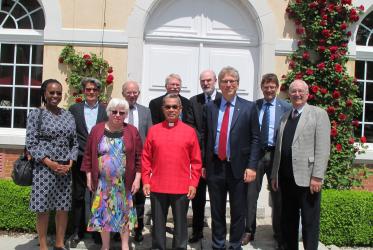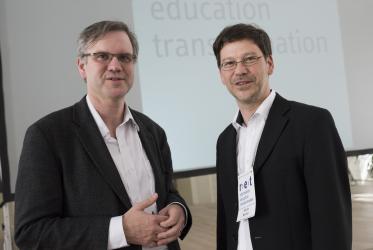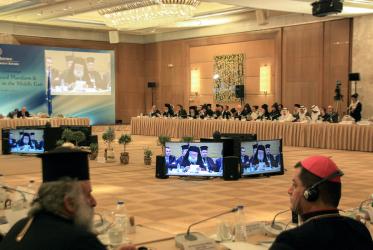Displaying 141 - 160 of 261
Panel discussion fields ideas on European identity
26 April 2016
WCC conference explores ecological injustice in Uganda
21 April 2016
Catholic-WCC group pursues new mandate
13 April 2016
Religious leaders as agents of peace in the Americas
02 March 2016
Symposium focuses on religion, violence, extremism
04 February 2016
Rebuilding a smashed church in Albania
23 December 2015
Basel University honors Ghanian Methodist theologian
09 December 2015
WCC strongly condemned terror attacks
14 November 2015
WCC general secretary sends Diwali greetings to Hindu partners
12 November 2015
Religion and Violence relationship probed
29 October 2015
International conference addresses challenges in the Middle East
22 October 2015










